.
.
Stewart Butterfield, CC BY 2.0, via Wikimedia Commons

.
.
Greetings:
…..“Community Bookshelf” is a twice-yearly space where writers who have been published on Jerry Jazz Musician can share news about their recently authored books and/or recordings.
…..This edition includes information about books published within the last six months or so, and is limited to those who submitted their news by the edition’s publication deadline.
…..All book descriptions, biographies, and photos were submitted by the writers with only minimal editing. Click on the author’s name under the book cover to be taken to pages where their work has been published on Jerry Jazz Musician.
…..I anticipate the next edition will be in the fall of 2025. Please get in touch with me as soon as possible if you expect to have a book published between March, 2025 and September, 2025, and would like to be included in “Community Bookshelf, #5”
…..Thanks for reading, and for supporting those who contribute their work to Jerry Jazz Musician.
Joe Maita
Editor/Publisher
.

.
.
,
,
____________________
.
.
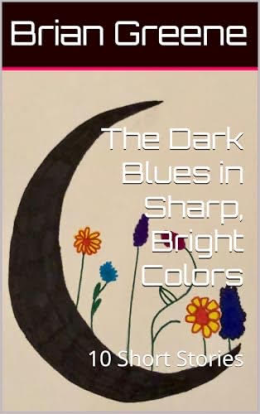
The Dark Blues in Sharp, Bright Colors/10 Short Stories by Brian Greene
.
.
…..This is a collection of 10 short stories, four of which have been individually published by literary outlets (including Jerry Jazz Musician). The stories are works of literary fiction that follow characters at critical moments in their lives. A recent divorcee uneasily enters the online dating arena; a young boy has his first experiences with inner trauma when his family makes a a major geographical move; a bachelor reluctantly agrees to babysit his friend’s daughter and has an epiphany he couldn’t have expected; a college student with a working-class background becomes involved with a wealthy and spoiled woman and both are surprised by the relationship that develops between them; a single father struggles while trying to understand and cope with his teenage daughter’s mental health crisis. The stories show how the characters respond to these life-changing episodes and point to what might come next.
.
.
View the book on Amazon by clicking here
.
.
.

Brian Greene writes short stories, as well as journalism features on books, music, film, and fine arts. His work has appeared in approximately 50 online and print publications. Brian lives in Durham, North Carolina and he’s on Twitter/X @greenes_circles.
.
.
____________________
.
.
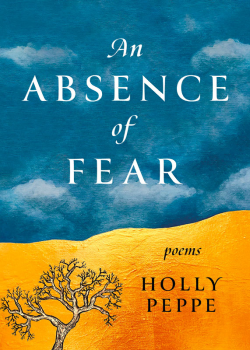
An Absence of Fear, by Holly Peppe [Amplify]
.
.
…..Unpretentious, finely crafted, and luminous in their depth of feeling, the collected poems of Holly Peppe reflect a love for language and its nuances. They vary in mood and tone, incorporating vivid observations of people and places, insights into human wants and needs, and dark humor disguising fears that are often all too real: “We laugh when we run out of fear.”
…..An Absence of Fear offers readers a primer on how to be sensitive to the world around us while living every day to the fullest, even after learning it might be our last.
.
A poem from the book:
.
Elegy in D Minor
Forgive me, Anna,
for not attending your funeral,
for pretending I was ill,
for hiding in my study,
sipping the brandy you gave me
at two o’clock, when the service began.
For not answering the phone for a week afterward,
for repeating your name softly,
then louder and louder to no one,
for this hollow feeling,
for these apologies,
forgive me, please.
That I should wish you alive today,
hammering out tunes on an off-key piano,
music as old as those bleak rented rooms;
that I should long for one more hour
trading smokes and jazz and histories:
these are thoughts too futile
to pursue.
Only forgive please the stillness,
the evening’s steady drift toward blindness.
Forgive me the inability
to refrain from words
at a time like this.
.
Listen to the actor Barbara Feldman read “Elegy in D Minor”
.
.

…..Holly Peppe is a leading authority and literary executor for the Pulitzer Prize-winning poet Edna St. Vincent Millay. Her critical essays about the poet’s life and work appear in the Penguin Classics, Harper’s, and Yale University Press editions of her poems.
…..In addition to her literary work, Peppe had a successful 30-year career as a global media, PR, and crisis communications strategist, representing clients in education, arts, health, gender equality, and human rights. She spent eight years in developing countries with ORBIS International before founding her own PR firm in Manhattan, working with a diverse clientele including the UN Office for Children and Armed Conflict and New York Theatre Workshop.
…..In earlier years, she taught poetry and literature at the high school and college level and served for three years as Director of the English Department at the American College of Rome, Italy. She also taught music at an elementary school in rural Vermont and attended Woodstock, a treasured memory from her hippie days.
Click here to visit Holly Peppe’s website
.
.
____________________
.
.
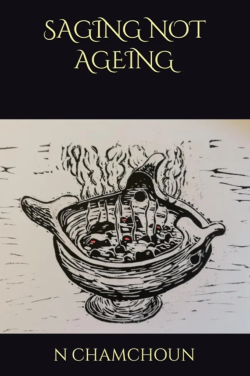
Saging Not Ageing, by N. Chamchoun [Alien Buddha Press]
.
.
…..“Sageing Not Ageing” by N. Chamchoun is a poetic journey through the complexities of existence, exploring the tapestry of life’s experiences with lyrical grace and profound insight.
…..In this captivating collection, Chamchoun invites readers to delve into the depths of identity, cultural heritage and the passage of time. Through vivid imagery and evocative storytelling, she navigates the intricate landscapes of memory, love, and loss, painting a portrait of resilience and wisdom.
…..From the vibrant streets of London to the sun-kissed shores of Morocco, Chamchoun’s words resonate with authenticity and raw emotion, inviting readers to embrace the beauty of impermanence and the power of self-discovery. “Sageing Not Ageing” is a testament to the enduring spirit of the soul, celebrating the richness of life’s journey and the timeless wisdom found within.
…..The collection consists of 78 poems and 123 pages
.
A poem from the book:
.
L’artiste et la Poétesse
See how she runs to the flame.
As the moth to luminous things.
Knowing her wings may be singed.
Filaments of light, a Pied Piper’s tune
She is brave and and foolhardy,
Yearning for the rage of the furnace,
Meeting its inferno head first.
Smirking as she sips her Bacardi.
Seeking ruinous pleasure.
Rising out of yesterday’s ashes.
Her voice drips like molasses,
She beckons the seeker of treasure.
He, giving charge to her power.
His tone, a call to love.
The hand and the glove,
Each form, shaped for the other.
Vibrating, a woman empowered.
Surging with confidence and allure,
She pours back into the source
for him to savour and devour.
His hands tease such delicate strokes.
She is the canvas of his passion
He works with ardent compulsion,
An explosion of the joy she invokes.
She watches him from her desk.
Painting him with her mastery of words.
Each immortalising the paradise shared.
The celebration their hands express.
She woos him with her artistry of language.
He, with the hues of his soul,
Drinking from the other’s bowl.
Their movements, louche and languid.
Les amoureux muse.
Oil and colour.
Pen and paper.
Mixing as they fuse.
Radiating, he smiles, “She is called My Soul’s Twin,
Tell me what you think, darling poétesse?”
He soars on the pleasure her eyes express,
She hums “Come my twin, let our souls burn through our skin.”
.
.
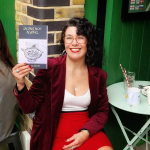
Nayma Chamchoun is a British Moroccan self-taught writer and poet. Her writing is influenced by her cultural duality. She is interested in female voices in the diaspora community, the challenges they face within both communities and the taboos around mental health within their ancestral communities.
.
.
____________________
.
.
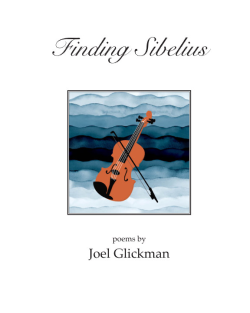
Finding Sibelius, by Joel Glickman [Aji Press]
.
.
…..Joel Glickman’s most recent book of poetry is a slender volume titled Finding Sibelius, a chapbook encompassing a dozen poems all having to do with music over a range of styles, perspectives, and experiences.
…..Joel, over a long career and beyond that in retirement from his post at Northland College, has been a classical clarinetist, orchestral conductor, jazz saxophonist, jazz band leader, lecturer, singer-songwriter and five string banjo player in the folk music realm. In these poems on music and musicians, pursued from varying perspectives, he opens with a piece inspired by the Finnish composer, Jean Sibelius, which leads to other forays after Bach, Chopin, Mozart; jazz giant Sonny Rollins; and sundry cowboy, blues and folk tunes.
…..The hope of the author here was not to be comprehensive, but that listeners or practitioners across the vast territories of musical tastes and experience will find at least a poem or two in this compilation that will grab and shake them a bit, and more importantly, think about, rethink or reconnect with the music that lives inside them.
.
A poem from the book:
.
Dink’s Blues and Drum Fills
One of these days and it won’t be long,
You’re going to call my name, and I’ll be gone.
Fare thee well, oh honey, fare thee well.
I’m whistling a tune about
a woman’s broken heart,
down a long and empty
hallway, just to hear it
move itself along,
floating on ahead of me
underneath the low ceiling
like a dark blue kite bumping
the bottoms of cobbled clouds
as it passes by the doorway
of a girl whose apron strings
will not tie anymore.
Then there is no more music
all through the skittering noise
of afternoon and night, till
well past bedtime, when
the mouse who has been stealing
kibble from the dog, now rolls
his stash across the floor above us.
And on the back stoop, something
big enough to stand and tip over
the recycle bin stops by again,
looking for a meal, and once more
it’s all for naught.
The scrubbed tin cans and bottles
sound to me a bit like Max Roach
as they tumble on the back porch
long after the woman called Dink
shared a song about some man
as she did her husband’s laundry
in Greater Calhoun Bayou
while he worked on the levee.
Up here, a skunk or raccoon
shambles away, still hungry,
in the atonal darkness.
The world is full of sadness.
.
.
.
 Joel Glickman
Joel Glickman
.
.
____________________
.
.

Music, Words, and Nationalism, Marco Katz Montiel contributing author [Palgrave/Macmillan]
.
…..Music, Words and Nationalism: National Anthems and Songs in the Modern Era considers the concept of nationalism from 1780 to 2020 through anthems and national songs as symbolic and representative elements of the national identity of individuals, peoples, or collectivities. The volume shows that both the words and music of these works reveal a great deal about the defining features of a nation, its political and cultural history, and its self-perception. The book takes an interdisciplinary approach that provides a better understanding of the role of national anthems and songs in the expression of national identities and nationalistic goals. From this perspective, the relationship between hymns and political contexts, their own symbolic content (both literary and musical) and the role of specific hymns in the construction of national sentiments are surveyed.
.
.
.
.

Erstwhile salsa trombonist Marco Katz Montiel composes poetry and prose in Spanish, English, and musical notes. His essays, poems, and stories have appeared in Ploughshares, Jerry Jazz Musician, English Studies in Latin America, Camino Real, WestWard Quarterly, Lowestoft Chronicle, and in the anthologies Cartas de desamor y otras adicciones (Univ. Alcalá), There’s No Place (Renaissance Press), and Volume IV of the Capital City Press Anthology. Marco has two poems, “Adiós Vàlencia” and “Descarga del año viejo (un son montuno desde el punto de vista de unos músicos boricuas),” in the current issue of Copihue Poetry.
Click here for his website
.
.
____________________
.
.
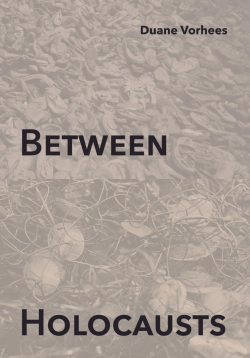
Betweem Holocausts, by Duane Vorhees [Hog Press]
A poem from the book:
.
We Gamblers of Fate are Played by the Jugglers of Time
The silence of echoes is too loud to hear.
The excess deer was culled
before the hunt was closed.
We race toward that precipice we screened ourselves from.
Lazarus’ miracle
just delayed the dust.
We are partners of the same condition.
Though odds up and fall
our lots have been tossed.
The future always lies to us, but so does the past.
You get the apple
filling — You get the crust
Paths twist and twist no matter which we pick.
You get the pedestal —
and You get the bust.
Rivers have many tributaries but only one result.
You get the sadist’s fuel,
You the holocaust.
.
.
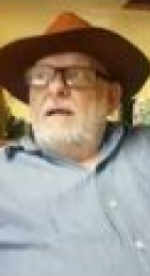
An American poet living in Thailand, all Duane Vorhees’ books include 100+ poems in a variety of styles, on subjects and themes that range from personal and philosophical to historical and romantic.
.
.
____________________
.
.
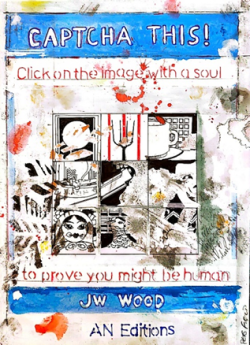
Captcha This!, by JW Wood [AN Editions]
.
.
…..In 2015, J.W. Wood gave up his day job and disappeared to homestead acreage on an island in British Columbia, Canada – armed only with an axe, some tools and the determination to free himself. Seven years in the wilderness gave him plenty of time to write – and Captcha This! is the result: a compendium of short satires that spares no-one. From pompous investment bankers, vacuous fame-hunters, feudal tech overlords and invasive grammar-nazi software through to government by bogus statistic and further denizens of today’s digital abyss – all are given a not-so-gentle skewering.
“J.W. Wood’s stories evince a gift for the quotidian, employing brilliant conceits and mischievous turns of phrase which enrich the writing at every point. Capturing the frustration of curtailed lives and the grim horrors of the corporate world, Wood presents a meta-fictional universe in which the rich realise their folly and we control computers, not the other way round.”
– Julian Stannard, award-winning poet, author: The University of Bliss (Sagging Meniscus, 2024)
.
.

J.W. Wood is a British writer currently living in North America. His work is widely published in US, UK and Canadian anthologies, and in many magazines around the world. He is also the author of several published collections of poetry and a novel selected for film rights auction at the Rome Film Festival.
.
.
____________________
.
.
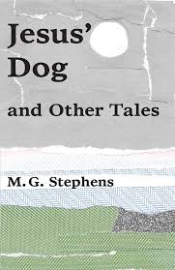 |
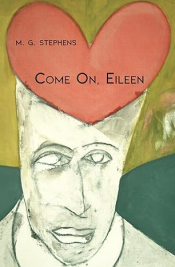 |
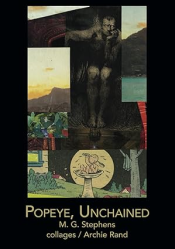 |
.
Three books by M.G. Stephens
.
.
…..JESUS’ DOG by M. G. Stephens (Paycock Press, 2024), stories
…..COME ON, EILEEN by M. G. Stephens (Spuyten Duyvil, 2025), linked stories, about an Irish poet named Eileen Coole who meets, falls in love, and marries the jazz musician and political activist, Santiago Santa. Because the FBI tries to frame and implicate Santa in a Black Panther murder in Oakland, the Santas flee the country and wind up spending twenty years in Algiers, Algeria. Eventually, free of drugs and clean in Paris, Santiago dies of AIDS and Eileen moves to London, where many of the stories are set, with her remembering different events in their long relationship.
…..POPEYE, UNCHAINED by M. G. Stephens, with collages by Brooklyn artist Archie Rand (Spuyten Duyvil, 2025). There are eighty-five mostly sonnets, unrhyming but in blank verse form, about Popeye and his companions. Archie Rand has a collage for each poem.
.
.

M. G. Stephens
.
.
.
____________________
.
.
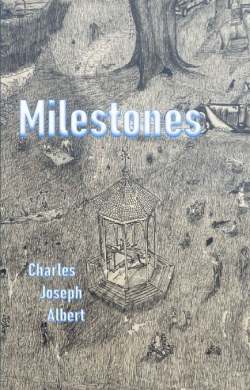
Milestones by Charles Joseph Albert
,
.
A poem from the book:
.
Louche
There is something louche
about the way the cat
only jumps on the kitchen counter
with no humans around—
she knows she isn’t allowed.
Scientists think that free will
doesn’t exist; humans only
obey some Neurological Coding
invisible to us, hidden deep within.
“There is no rational explanation
for being able to choose freely.”
I choose to not believe them.
When I’ve ignored her for too long,
my dog will fish a sock
from the hamper
and bring it to me, ears low,
tail between her legs—
knowing full well it’s wrong,
but it’s what she will do
to get my attention.
.
.
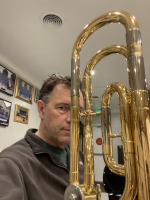
Charles Joseph Albert writes poetry and fiction in San Jose, California, where he also plays with the South Bay Bones, a trombone choir. He has published a dozen stories and six dozen poems in a variety of journals and e-zines around the web, and sixteen collections are available on Amazon.
.
.
____________________
.
.
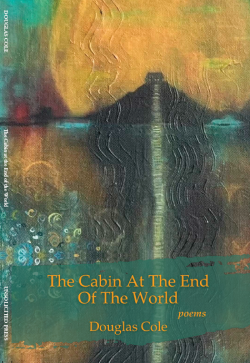
The Cabin at the End of the World, by Douglas Cole [Unsolicited Press]
.
.
…..A 2024 Best Book Awards Winner for Urban Poetry, and Finalist in both the Narrative and Contemporary Poetry categories, The Cabin at the End of the World is Douglas Cole’s first poetry collection to explore the prose poem. Inspired by Charles Baudelaire, Octavio Paz, Claudia Rankine and James Wright, Cole tells a tale of the world in fragmentary, dreamlike poems rich in musical language that retains a mystery bringing readers back again to see what shimmers at the edge of the page. If the finger pointing at the moon is not the moon, then these poems are visions wrought in moonlight.
.
A poem from the book:
.
A Game of Chicken
When the train still came through town along Sand Point Way
up at the north end of the lake, we used to swing out on a rope
tied to a tree branch above the tracks in a game called Chicken,
and one boy named Stuart who was often hounded by the pack,
timid, backed away up the muddy hillside until taunted one day
he at last took hold of the frayed rope just as the engine passed,
and we watched him arc out like we had done but at the point
directly over the train he turned to face us—and what can I say
about that expression and the way it seemed like a final blow
as he let go or slipped—who could know—and was carried off,
as we scattered fast and only heard the rest of the story later
on the news but among us we never said a word about it ever.
.
.
.

Douglas Cole has published six collections of poetry and The White Field, winner of the American Fiction Award. His work has appeared in several anthologies as well as journals such as The Chicago Quarterly Review, Poetry International, The Galway Review, Bitter Oleander, Chiron, Louisiana Literature, Slipstream, as well Spanish translations of work (translated by Maria Del Castillo Sucerquia) in La Cabra Montes. His series Trading Fours with Douglas Cole is a regular feature on Jerry Jazz Musician.
.
.
____________________
.
.
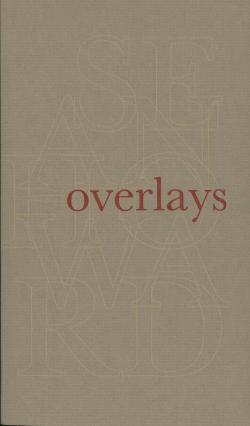
Overlays (Scored Poems), by Sean Howard [Gaspereau Press, Canada]
.
.
…..In Overlays, Sean Howard employs experimental, magpie strategies that draw fresh poems from the deep wells of two related texts – John Thompson’s influential poetry collection Stilt Jack (1978) and Peter Sanger’s Sea Run (2023), a critical commentary on Thompson’s mesmerically allusive and elusive ghazals. By mixing images and diction from these source texts with his own reserve of memories, dreams and associations, Howard opens a fresh, lucidly turbulent correspondence between literary elements, the shapes, sounds and silences of his poems creating a palimpsest score.
.
Two poems from the book:
.
Heights
The lost art of being
crookedly exact. (Prose
Pentecost, tongue sand-
wiched.) The grandeur that
proved deadly: the ravenous
Tower, far cries from the mar-
ble eyes of Caesar. Dreams
not always kindly remind-
ing: the real tragedy,
low comedy, no
heights to fall
from. Faust-
feast of
Progress, God’s
blood baked in: words
to ward these woes? Yet
the gazelle (grace in the maze)
seeks a parley with the lion
psychosis, gnawing
the real to the
bone
.
.
Winds
Mindwind, quickword
if I may: now I know,
the something rotten
in the Yeats? Ha!,
nothing on the
stove, won’t
be long
now:
the
empty
swing, cold keys
of music? (But poetic
process all there is, never
done divining…) Holding
the line of silence, moon
shadow from the silver
cross. Passim strange:
modern toffee on the
tongue, Elizabethan
apples still freshen
the mind. O for
quiet spirits
now, yes
pour
cold
water, for here
I am leaving the
wind in the
rain
.
.

Sean Howard is the author of six collections of poetry in Canada, most recently Trinity: Tribute Sequences for Robert Graves (2022). His work has been widely published in Canada, the US, UK, and elsewhere, and featured in The Best of the Best Canadian Poetry in English (2017). Howard is a peace researcher and activist, and adjunct professor of political science at Cape Breton University, Nova Scotia. He lives in the fishing village of Main-à-Dieu, Cape Breton.
.
.
____________________
.
.
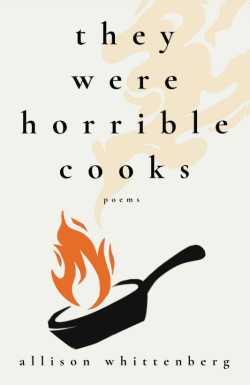
They Were Horrible Cooks, by Allison Whittenberg [Cornerstone Press]
.
.
…..A husband reads his dead wife’s poems to a spare crowd, while cannibals go hungry with no one to invite to dinner. Whether bearing witness to the torment of a mother who drowns her own children, or to the quiet sorrows of daughters mourning their mother by fingering the thread of her old coats, They Were Horrible Cooks never fails to illuminate crucial truths at the center of human experience.
.
“With honesty, humanity, and wit, They Were Horrible Cooks intermixes historical themes and everyday traumas, boldly laying bare the realities and ironies of a dog-eat-dog world.”
-Tiya Miles, author of All that She Carried, National Book Award Winner
.
“Allison Whittenberg embraces the topic of family though she’s haunted by memories-she gives us little jewels of poems, many that I savored.”
-Karen Loeb, author of Jump Rope Queen
.
“There is pain in many of these emotional snapshots, but there is also joy. This is a collection that reads easily and rewards rereading often.”
-Don Riggs, author of Bilateral Asymmetry
.
.
A poem from the book:
.
Truce
For the girl abused by her father,
The terrible is the beautiful
In between, he showed range
Embracing a new word from the family dictionary:
Fun
A pumpkin nearly half her size that he let her pick
They came home from the patch and clawed out its guts
He put the face in the window
Without a recipe, they baked happiness on that stunted, gray afternoon
A can of condensed milk and molasses
The outside, cold as reality
Inside, warm. Warm as television
They laughed when the pie turned out to be a horrid tasting neon orange mess
Because that day, they were not tragic figures;
They were horrible cooks.
.
.
 Born in Philadelphia and educated in New York and Wisconsin, Allison Whittenberg is an award winning novelist and playwright. Her poetry has appeared in Columbia Review, Feminist Studies, J Journal, and New Orleans Review. Whittenberg is a six-time Pushcart Prize nominee. Driving with a Poetic License and They Were Horrible Cooks are her collections of poetry. Her favorite singers are Betty Carter, Billie Holiday, and Lee Wiley.
Born in Philadelphia and educated in New York and Wisconsin, Allison Whittenberg is an award winning novelist and playwright. Her poetry has appeared in Columbia Review, Feminist Studies, J Journal, and New Orleans Review. Whittenberg is a six-time Pushcart Prize nominee. Driving with a Poetic License and They Were Horrible Cooks are her collections of poetry. Her favorite singers are Betty Carter, Billie Holiday, and Lee Wiley.
.
.
____________________
.
.
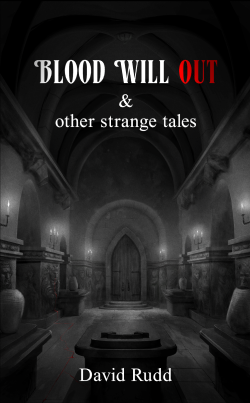
Blood Will Out, and other strange tales, by David Rudd [Shakspeare Editorial]
.
.
…..This is my first collection of stories, taken from the fifty or so I’ve published in various magazines. Though I’ve written in different genres, I was advised to theme the collection, so I’ve concentrated on tales with an uncanny element. Although, despite the title, there’s hardly any blood. I like to think the 21 stories are more disconcerting in a more subtle way, in the vein of M.R. James, H.G. Wells or Robert Aickman, exploring what stands outside that narrow bandwidth of “reality”: off grid, off piste, off the rails. However, though the stories aim to disturb, many of them also have a humorous side, the comic being another effective way of troubling strait-laced reality.
…..For example, there’s the contemporary vampire who challenges the orthodox Dracula stereotype; or the student haunted by a gold prospector encountered in the Montana hills, who helps the lad profit on the stock exchange; or the travelling salesman who keeps encountering an old-world farm lying just off a modern highway complex. Regrettably, in this collection the only thing missing is Jazz!
…..The book is available in paperback and ebook versions.
.
.

Dr. David Rudd is an emeritus professor of literature who wrote academic prose for 40 years before letting his imagination run free.
.
.
____________________
.
.
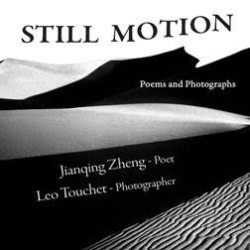
Still Motion/Poems and Photographs, by Jianqing Zheng and Leo Touchet [Photo Circle Press]
.
.
…..Still Motion is a collection of ekphrastic poems after Leo Touchet’s photographs published by Photo Circle Press in December 2024. Leo’s photographs present facets of the beauty of dunes and New Orleans jazz that are hard to resist when their visual charms fascinate a viewer. The composition of his photos exhibits beautiful shapes made effective by light and shadow with a tension of fluidity and tranquility of the dunes as well as jazz funerals and festivals that inspire ekphrastic writing. That’s why I cultivated an artistic imagination in his poetry writing after Leo’s photographs.
…..Poetic ekphrasis engages communication between imagination and creativity and helps one focus on things, not ideas. Ekphrastic writing is not a retelling of what we see in artworks; it concerns an interaction of the senses, a creation from the original art. Since ekphrastic poetry is a reinterpretation that experiments with imagination, language, and synesthesia in its creative process, it is hoped that the poems in this duet are good company to Leo’s photographs.
.
.
A poem from the book:
Questions from Seeing
—Eureka Valley Sand Dunes #0758
The background shadow looks like
a mummy of an Egyptian pharaoh
and the foreground sand ripples like
a pyramid labyrinth in darkness.
If ancient burial means eternal peace,
why should it be disturbed?
But after the buried is unearthed
for research or exhibition, what is seen
after a mummy is unwrapped cautiously?
An object for preservation study or
a body as dry as a dead Joshua tree?
As you walk near a mummy case
in the museum, do you shudder
at those big, painted, and staring eyes?
Who has a stronger desire to see?
A researcher, a museumgoer, or
the dry mummy who may be able
to silently watch us doing whatnot?
.
The book can be found on Amazon by clicking here
.
.

Jianqing Zheng is the author of The Dog Years of Reeducation (Madville Publishing, 2023) and A Way of Looking (Silverfish Review Press, 2021). He teaches at a historically black institution in the Mississippi Delta.
.
.
____________________
.
.

Maverick Secrets. Decoding Early TV Westerns, by Catherine Lee.
.
.
…..Maverick Secrets. Decoding Early TV Westerns is Catherine Lee’s 2nd self-published dramatic script. Its characters’ opinions are documented in Works Cited and Research Consulted bibliographies. Also included is the poem “Majority Rules.”
…..At a city-run Center in San Antonio, senior friends play Texas Hold’Em poker and chat. They overhear an old Western being broadcast. Discussion turns to how Westerns unconsciously influenced them as children to hold biased attitudes about cultural minorities, women’s roles, and openly-carried firearms.
…..Bonnie, a Jewish, divorced woman, moved to South Texas from back East and is fascinated by the contrasted cultures. Mashawn is a Black man, married guardian of his pre-teen grandson whose father is incarcerated. Keith, of Irish extraction, is native Texan, a married, retired military man. In the service, he developed passions for gun ownership and game hunting, and became an expert card player. Valinda is a Black, single, wheelchair-bound diabetic woman, who in younger days danced on TV’s Soul Train. Her daughter was shot to death by an abusive boyfriend. Lupe, a married Mexican-American woman, has lived with her family in Tejas for many generations, since the first migrations of Canary Islanders and Spaniards in the 1600s.
.
.
.

Catherine Lee is a widely published neo-Beat who reads solo and performs with improvising musicians “on poem.” Among these were joint gigs (1986-87) with poet/hipster tedjoans, whose “Jazz is my religion” griot mantra continues to inspires her.
.
.
____________________
.
.
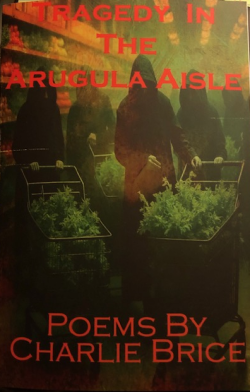
Tragedy in the Arugula Aisle, by Charlie Brice [Arroyo Seco Press]
.
.
Poetry from the book:
.
Jazz Haikus
Fifty years ago
on a sofa I held her breast;
some enchanted evening.
At dawn my sweet wife
is in tremendous pain;
sweet embraceable you.
Billy Strayhorn drove
these rain-soaked Pittsburgh streets;
a daydream for me.
Like a dark lake her
black hair pooled on my pillow;
a love supreme.
For fifty years my
woman held me close in love;
night and day and night.
Pain medication
my chemical salvation;
you go to my head.
Autumn leaves skitter
along dusty, lonely, streets;
thunder before rain.
Our love so intense
we are alone together;
a noisy nightclub.
Even in high school
your silky voice made me cry;
my funny valentine.
.
.

Charlie Brice won the 2020 Field Guide Poetry Magazine Poetry Contest and placed third in the 2021 Allen Ginsberg Poetry Prize. His sixth full-length poetry collection is Pinnacles of Hope (Impspired Books, 2022). His poetry has been nominated three times for both the Best of Net Anthology and the Pushcart Prize and has appeared in Atlanta Review, The Honest Ulsterman, Ibbetson Street, The Paterson Literary Review, Impspired Magazine, Salamander Ink Magazine, and elsewhere.
.
.
____________________
.
.

Flight Risk: Poems and Translations, by DB Jonas [Kelsay Books]l
.
.
.…..However far from home their insights and imagery may deposit us, his poems keep us firmly grounded in poetic tradition, always within earshot of Rilke, Yeats, or the Chinese Classics. Flight Risk never fails to endow the insubstantial with substance, and to pulse with the music of lived life.
– Johnny Payne, author of Midnight Sutra, Ostraca, Heaven of Ashes, and Vassal
.
.
A poem from the book:
.
Flight Risk
………….on a Joseph Cornell Owl
She occupies a mental space
reserved for disappearances.
In your mind’s eye, she’s only
barely there. In hers, you’re
something that has never been.
Her dark regard’s a one-way
street; this ice-blue reverie’s
her native element. Her talons
grasp the night she gazes on,
an iron grip devoid of sentiment.
Your limping stanzas try to own
the fierce poetics of her stare,
to seize the silences you think
you hear. Although in silence
she’s already flown, her absence
doesn’t leave your thought alone.
.
.
.
.
____________________
.
.
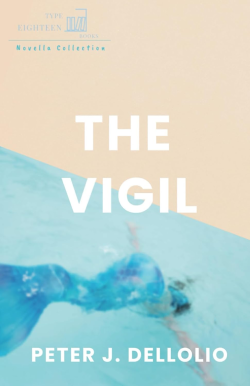
The Vigil, by Peter J. Dellolio [Type 18 Books]
.
.
…..“The Vigil” is about a man (Ralph Unda) who is the lighthouse keeper on Little Brewster Island in Massachusetts. His young daughter (Georgia) suffers from schizophrenia that takes over her mind after she dreams of a seagull flying into the lighthouse during an overnight storm. By coincidence, she finds a dead seagull on the rocks the next morning.
…..Her delusional beliefs convince her that the dream caused the seagull’s death. Until her death by suicide at the age of twenty-three, her father tries desperately to find a cure for her schizophrenia. Losing touch with reality, he keeps a “vigil” over the sea, hoping to somehow rescue her.
.
.
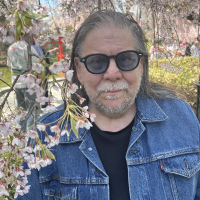
Brooklyn resident Peter J. Dellolio’s poetry, prose-poems, fiction, short plays, art work, and critical essays have been published in over 80 literary magazines, journals, and anthologies. Three poetry collections have been published since 2018. Chapters from his critical study of Alfred Hitchcock (Hitchcock’s Cinematic World: Shocks of Perception and the Collapse of the Rational) published in The Midwest Quarterly Literature/Film Quarterly, Kinema, Flickhead, and North Dakota Quarterly have been published since 2006. His paintings and 3D works offer abstract images of famous people in all walks of life who have died tragically at a young age. His art can be seen on his website by clicking here.
.
.
.
.
____________________
.
.
Click here to read previous editions of the Community Bookshelf
.
.
Click for:
More poetry on Jerry Jazz Musician
“Bluesette,” Salvatore Difalco’s winning story in the 67th Jerry Jazz Musician Short Fiction Contest
More short fiction on Jerry Jazz Musician
Information about how to submit your poetry or short fiction
Subscribe to the (free) Jerry Jazz Musician quarterly newsletter
Helping to support the ongoing publication of Jerry Jazz Musician, and to keep it commercial-free (thank you!)
.
.
___
.
.
Jerry Jazz Musician…human produced since 1999
.
.
.








































